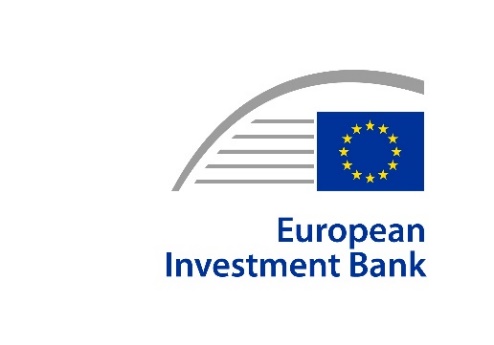 (AGENPARL) - Roma, 28 Maggio 2025
(AGENPARL) - Roma, 28 Maggio 2025(AGENPARL) – Wed 28 May 2025 PRESS RELEASE2025-224-EN
New York, 28 May 2025
EIB welcomes new UN Protocol to mobilise investment for a sustainable ocean economy
The European Investment Bank (EIB) welcomes the launch of the United Nations Ocean Investment Protocol, a comprehensive new framework to align financial flows and business practices with the transition to a sustainable ocean economy. As a knowledge partner in its development, the EIB recognises the Protocol as a vital guide to scaling finance for a healthy and resilient ocean.
The United Nations Global Compact and the UN Environment Programme Finance Initiative (UNEP FI) today unveiled the Protocol, which builds on the UN Global Compact Sustainable Ocean Principles and UNEP FI’s Sustainable Blue Economy Finance Principles. The Ocean Investment Protocol offers financial institutions, insurers, ocean industries, governments, and development finance institutions a clear pathway to collectively foster the growth of the Sustainable Ocean Economy and achieve the Sustainable Development Goals (SDGs), including SDG14 (“Life Below Water”).
As the largest supporter of the blue economy among development finance institutions, the EIB Group has committed €10.6 billion to blue economy projects between 2020 and 2024, mobilising €43 billion in total investments. The EIB was also a co-founder of the Sustainable Blue Economy Finance Principles in 2017, helping to set a global standard for responsible investment.
The release of the Ocean Investment Protocol comes at a pivotal moment, as global momentum builds around a nature-positive agenda, the urgent need to curb carbon emissions, and accelerating action to tackle plastic and chemical pollution. The Protocol is intended to galvanize multi-stakeholder collaboration in the run-up to major ocean, climate, and biodiversity milestones.
Key elements include:
Holistic Guidance for financial actors to manage environmental risks and pursue growth in sectors such as offshore renewables, sustainable seafood, and climate-resilient infrastructure.
Data and Disclosure recommendations, promoting greater transparency on nature-related risks and impacts and aligning with global reporting frameworks, including the Taskforce on Nature-related Financial Disclosures, the Task Force on Climate-related Financial Disclosures, and science-based targets.
Sector-Specific Roadmaps outlining responsible financing and operational practices in shipping, tourism, fisheries, renewable energy and other key ocean industries.
Policy and Regulation Support to foster investment-ready environments, highlight the importance of marine spatial planning and encourage incentives for sustainable practices.
Catalytic Role of Development Finance in advancing pipeline development for the Sustainable Ocean Economy, especially in emerging markets and coastal communities most vulnerable to climate change.
“The UN Ocean Investment Protocol is a strong complement to the Sustainable Blue Economy Finance Principles, which the EIB co-founded,” said EIB Vice-President Ambroise Fayolle. “It provides governments, financial institutions, insurers, and companies with the clarity and guidance needed to align private investments with the Sustainable Development Goals. By setting clear recommendations for responsible investment, the Protocol will help ensure that growth in ocean industries goes hand in hand with environmental stewardship and social inclusion. At the EIB, we look forward to helping turn these recommendations into concrete action for the benefit of people and planet.”
Background information
A thriving ocean is essential for biodiversity, food security, climate resilience, and global livelihoods. The Sustainable Ocean Economy links ocean health with prosperity—making targeted finance more urgent than ever. It is central to achieving the targets of the SDGs, the Paris Agreement and the Kunming-Montreal Global Biodiversity Framework. With ocean health inseparable from global prosperity, mounting pressures—rising ocean temperatures, overfishing, pollution, biodiversity loss, weak governance, and inequitable access to marine resources—highlight the urgency of dedicated investments and policies that safeguard marine ecosystems and drive equitable economic opportunities.
The ocean economy is already equivalent in size to the world’s fifth largest economy, and global markets are reliant on the ocean and its industries to support 90 percent of global trade volume. Developing a regenerative and sustainable ocean economy is becoming increasingly central to global transitions in trade, infrastructure, energy, climate resilience, food security and regenerative tourism. The Ocean Investment Protocol responds to the critical need for swift, holistic efforts to preserve ocean ecosystems and foster growth in sustainable ocean-based sectors. It outlines actionable steps to align investments with nature- and climate-positive outcomes, fostering innovation across key ocean sectors. By 2050, the market value of a refocused, sustainable and fairly shared ocean economy is projected to reach USD$5.5 trillion.
EIB
The European Investment Bank (ElB) is the long-term lending institution of the European Union, owned by its Member States. Built around eight core priorities, we finance investments that contribute to EU policy objectives by bolstering climate action and the environment, digitalisation and technological innovation, security and defence, cohesion, agriculture and bioeconomy, social infrastructure, the capital markets union, and a stronger Europe in a more peaceful and prosperous world.
The EIB Group, which also includes the European Investment Fund (EIF), signed nearly €89 billion in new financing for over 900 high-impact projects in 2024, boosting Europe’s competitiveness and security.
All projects financed by the EIB Group are in line with the Paris Climate Agreement, as pledged in our Climate Bank Roadmap. Almost 60% of the EIB Group’s annual financing supports projects directly contributing to climate change mitigation, adaptation, and a healthier environment.
High-quality, up-to-date photos of our headquarters for media use are available here.
Press contacts

